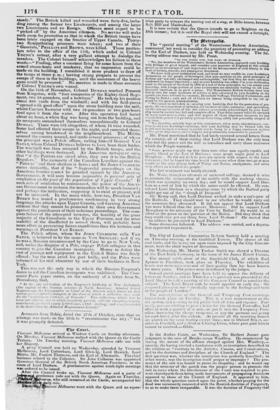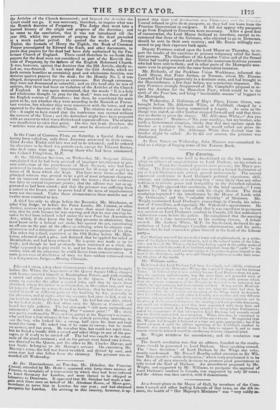the Articles of the Church denounced; and beyond the Alticles
the Court could not go. It was necessary, therefore, to inquire what was the Romish doctrine of Purgatory. The Judge then went into a learned history of the origin and progress of the doctrine ; and he came to the conclusion, that it was not introduced till the year 593, whilst the practice of praying for the dead prevailed at a much earlier period. He quoted the works of Jeremy Taylor, the formula of Henry the Eighth, the Book of Common Prayer promulgated by Edward the Sixth, and other documents, to prove that prayers for the dead had been duly authorized by the Pro- testant Church of England. There could therefore be no doubt that prayers for the dead were not considered as part of the Romish doc- trine of Purgatory, by the fathers of the English Reformed Church. It was, however, against that doctrine that thed Article, chiefly re. lied on, was directed. It was urged that the :35th Article, which set forth certain homilies as containing good and wholesome doctrine, was decisive against prayers for the dead; for the Homily No. 7, it was alleged, designated such prayers as erroneous. But though erroneous, they were not denounced as unlawful; and on this head also he was of opinion, that there had been no violation of the Articles of the Church of England. It was again maintained, that the words " It is a holy and wholesome thought to pray for the dead," were not those used in the English version of Maccabees : but then, he considered the main point to be, not whether they were according to the Romish or Protes- tant version, but whether they were consistent with the latter, and not opposed to the doctrine of the Church. The citation was also defec- tive : it ought to have stated that the tombstone was erected without the consent of the Vicar ; and the defendant might have been prepared with an answer to what was a distinct and separate offence. The citation was insufficient to raise that point. On this last head, therefore, the " articles were also inadmissible," and must be dismissed with costs.



























 Previous page
Previous page